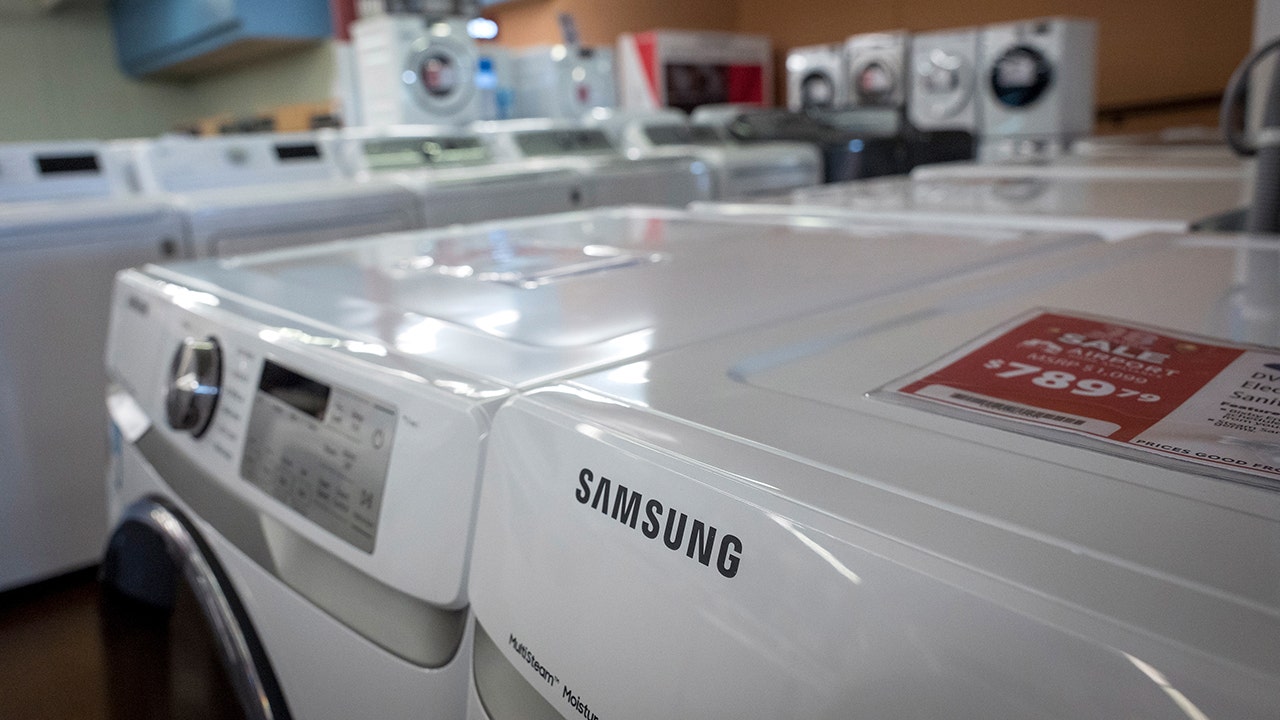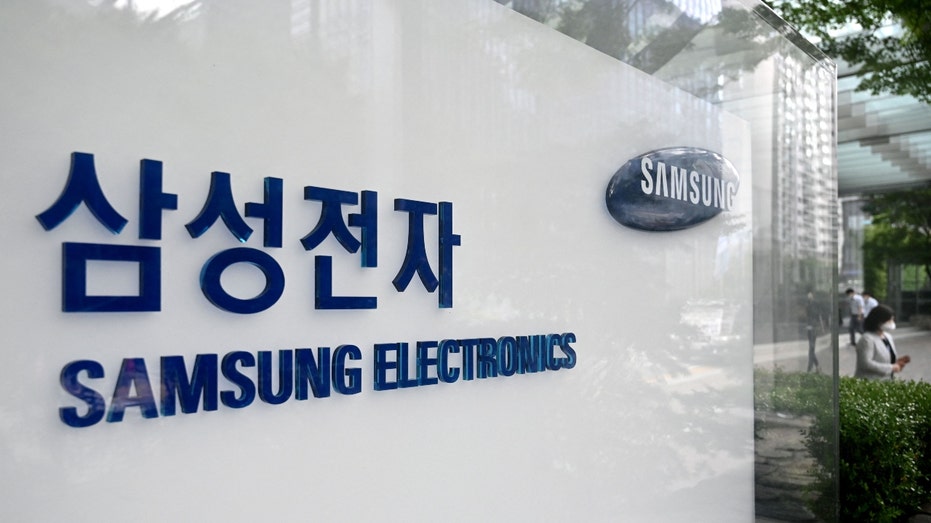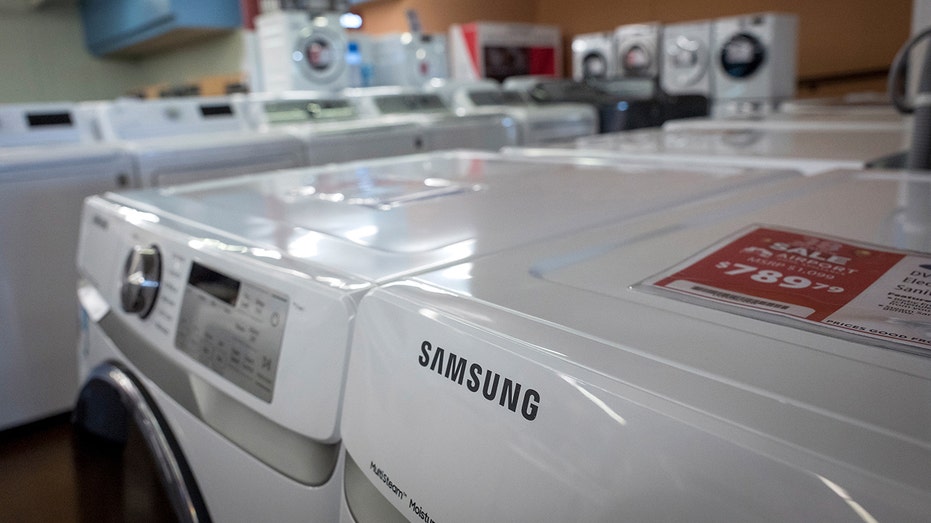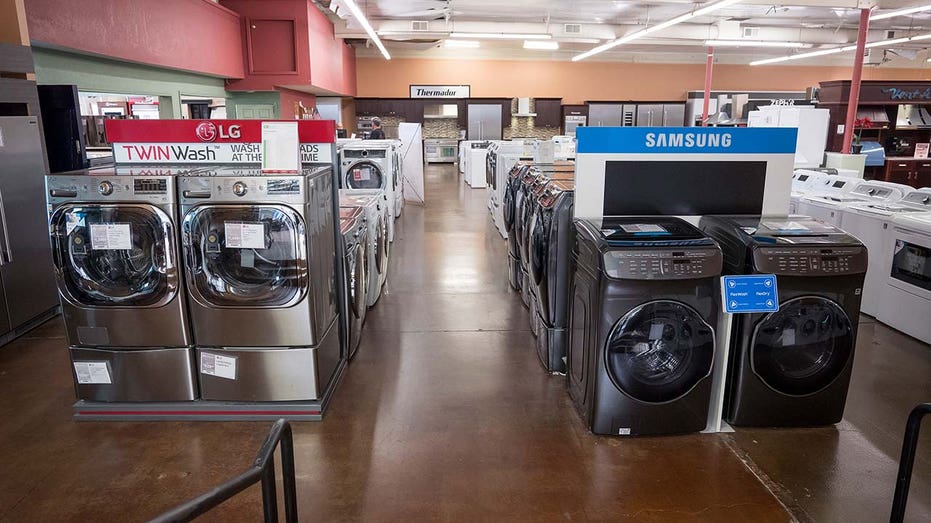
Samsung is considering moving dryer production to the US in response to Trump tariffs
Libby Cantrill, Pimco's head of US public policy, shares with the Barron's Roundtable what she expects President-elect Trump to accomplish on his first day back in office.
of South Korea Samsung Electronics and at least one other device maker is considering moving some operations from its plants in Mexico to factories in the United States.
Vision is the answer President Donald Trump A review of imposing a 25% tariff on imports from Canada and Mexico on February 1, a South Korean newspaper reported on Tuesday.
Samsung is considering moving dryer production, which currently takes place at its Queretaro plant, to a plant in South Carolina. Korea Economic Daily. The newspaper reports that the main product of the South Carolina plant is washing machines.
The facility, located in Newbury County, South Carolina, USA, was established in 2017. This is reported on Samsung's website. It was Samsung Electronics Home Appliances America's (SEHA) first US-based home appliance manufacturing facility.
COSTCO TEAMS VOTE TO ALLOW STRIKE

People walk past the Samsung Electronics logo in front of the company's Seocho building on July 7, 2022 in Seoul. (JUNG YEON-JE/AFP via Getty Images/Getty Images)
“Before, everything came from across the ocean, so if we had any part shortages, any delays, any material defects, we would have had to wait forever,” SEHA's Manufacturing Manager Bobby Stevens said in a statement for 2023.
“But now we have local material, so in just a few hours or even 10 minutes, we can get the parts and materials we need to get things going, so that's had a big impact on manufacturing here,” he said.
TRUMP SPOKE WITH APPLE CEO TIM COOK, teased investment in the USA

Samsung Electronics Co. washer and dryer on sale Tuesday, July 30, 2019 at Airport Appliances in San Jose, CA. (David Paul Morris/Bloomberg/Getty Images)
The Newberry object is “approx $500 million capital investment for the region” and directly supports “more than 1,500 jobs for local residents through its ongoing operations,” Samsung said in a statement.
LG Electronics is considering moving its Mexican refrigerator operations to a washer and dryer plant in Tennessee, Korea Economic Daily reports.
| Ticker | Safety | End | To change | Change % |
|---|---|---|---|---|
| SSNLF | SAMSUNG ELECTRONICS CO. LTD. | 40.5999 | -17.15 |
-29.70% |

Samsung Electronics Co. and LG Electronics Inc. washing machines on sale Tuesday, July 30, 2019, at Airport Appliances in San Jose, California. (David Paul Morris/Bloomberg via Getty Images/Getty Images)
CLICK HERE TO READ MORE ABOUT FOX BUSINESS
Samsung said it plans to monitor the situation and respond flexibly as it operates manufacturing bases in many regions around the world. LG Electronics said it plans to respond to changes in the market by adjusting its production system and production sites.
“If we build a plant in the US, not only can we avoid tariffs, but we will have the 'flexibility' to supply products immediately when customers want them,” an unnamed industry source told the media outlet. “If we manufacture in a US factory, we can reduce the delivery time of the domestic product by a quarter.”
Reuters contributed to this report.
